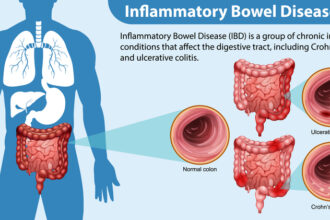A groundbreaking service designed to support older adults who are beginning to experience frailty has the potential to significantly reduce emergency hospital admissions by more than a third, offering considerable cost savings to the NHS. This finding comes from a study by University College London (UCL) researchers. The research, which was published in The Lancet Healthy Longevity, received funding from the National Institute for Health and Care Research (NIHR). The study investigated the efficacy and cost-effectiveness of a new service involving six personalised home visits by a support worker, who tailored each visit to meet the specific needs of the individual to help them stay well and independent.
The interventions provided during these visits included home exercise programs, nutritional advice to enhance energy levels, methods for improving mental well-being, and initiatives to increase social connections. These interventions were tested through a clinical trial involving 388 participants aged 65 and older, all assessed as having mild frailty, across three UK locations: London, Hertfordshire, and Yorkshire. Of these participants, 195 were randomly allocated to receive the new service, while the remaining 193 continued receiving their usual care without additional support.
Frailty among the elderly typically results in a diminished ability to recover from health issues, leading to an increased likelihood of disability, more frequent hospitalisations, and a greater need for care. The trial followed participants for a year to evaluate the impact of the service on their health and independence.
The results were significant. Those who received the new service experienced a 35% reduction in unplanned hospital admissions, translating into an average savings of £586 per person to the NHS over the year. Professor Kate Walters from UCL’s Department of Epidemiology & Health Care, the study’s lead author, highlighted the collaborative approach in developing the service, which involved experts, elderly individuals, and caregivers. The aim was to help people with mild frailty maintain independence and enjoy better health for extended periods.
Further benefits observed from the service included modest improvements in participants’ well-being, psychological distress, and frailty scores. However, the service did not significantly improve levels of independence in self-care tasks. Despite this, the overall findings support the current health policy focus on reducing hospital pressure through enhanced community and preventive care.
Andrew Farmer, Director of the NIHR Health Technology Assessment (HTA) Programme, praised the HomeHealth intervention for helping older adults with mild frailty stay independent, thus improving their quality of life and reducing hospital and care costs. He emphasised that focusing on key areas such as strength, nutrition, and social engagement helps reduce deterioration and the subsequent need for more intensive support. According to Farmer, high-quality research like this is crucial for advancing future health and care practices.
With the proper funding and support, the researchers believe the service could be rolled out to patients nationwide within two years. Professor Walters also noted the potential for significant financial benefits to the health service from investing in preventive measures, which could lead to savings in other areas of the system. The study was conducted in collaboration with Age UK, which was instrumental in delivering the service as part of the trial.
More information: Kate Walters et al, Clinical and cost-effectiveness of a home-based health promotion intervention for older people with mild frailty in England: a multicentre, parallel-group, randomised controlled trial, The Lancet Healthy Longevity. DOI: 10.1016/j.lanhl.2024.100670
Journal information: The Lancet Healthy Longevity Provided by University College London








